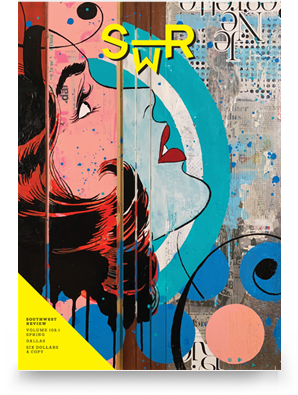
Thy dead men shall live,
together with my dead body
shall they arise.
Awake and sing, ye that dwell in dust:
for thy dew is as the dew of herbs,
and the earth shall cast out the dead.
—ISAIAH 26:19
On the road to Mar Bravo there’s a cemetery for poor people. It became a pilgrimage site for the chosen ones because four of their own were buried there. Between the graves adorned with artificial flowers faded by the sun, headstones with chipped corners, and weeds, the girls cried with their sparkling skin, their white blouses, their jean shorts, their beaded necklaces, and their strappy sandals. They hugged and patted one another like nymphs before the body of a lamb. Beside them, with dry eyes and their hands clenched in fists by their sides, stood the males of the species: boys with hair falling into their eyes, their arms deliciously hard. Freckled, smooth-skinned, silent, and sullen like geniuses or like idiots, so handsome it was scary.
Among the carpenters, seamstresses, fishermen, and babies malnourished from the womb, they buried the four surfers from Punta Carnero. The parents had decided that their sons should be laid to rest in that gray cemetery and not in the rich people’s one, with a lawn as green as a parrot, fresh roses—red and shameless, brought in by refrigerated truck—and marble headstones with religious inscriptions below the long surnames. They thought that the corpses of the most beautiful drowned men in the world should remain forever beside the sea. There were four of them; they would inherit the earth. The night before their deaths they’d broken a combined total of seventy-seven hearts at the yacht club party, kissing their gorgeous girlfriends and grabbing their little asses through their sundresses. At dawn, still drunk, they sheathed themselves in black neoprene and, only their skulls exposed, went out to brave the rough waves, convinced of their boy-god immortality. The sea spit them out on the seventh day, soft and whitish like newborns.
We always drank there, outside the Mar Bravo cemetery, because what else did we have to do? All the parties were private, by invitation only. Beautiful boys invited beautiful girls, average boys invited beautiful girls, hideous boys invited beautiful girls. Doors that looked like the gates of heaven opened up for other girls—but never for us. One time we tried to get into a party and the bouncer told us that it was for friends only and we answered: “Whose friends?” But the man was already lifting his pretenses of security, the velvet rope the color of blood, for an athletic, angular, smiling girl who looked like someone out of a tampon commercial. We were dying to find out what went on behind those pearly gates, even though we instinctively knew that there was no place for us there, that once inside, our defects would multiply until we choked on them, that we’d become a hyperbole of ourselves, fun-house mirror versions: the fat one, the butch one, the lanky one, the flat one, the hunchback. Just as the pretty girls would become even more attractive together, their collective virtues masking any individual defects to make one another look better until they shone like one giant star, girls like us are an obscene spectacle when assembled, our failings exacerbated into a kind of freak show: we become even more monstrous.
We knew, of course we knew, that not even the most desperate boys, not even those who were overweight, nerdy, or goth, would approach us. The only people who approach girls like us are girls like us. Why even bother? We were free to go anywhere we wanted, and we hated that: We longed for the beautiful girls’ lack of freedom, for the arms of our boyfriends like yokes around our necks, for quickies in the pool house without a condom, for big baseball-player handprints on our asses. We wanted to be taken by force and with every thrust to squeal the beautiful names of those beautiful boys. We wanted to spread our legs for them and grab their perfect hair when we came, knots the color of sand between our fingers. We wanted to make sweet cocktails and witches’ brews from the nectar of their sexes. We wanted the pretty girls to disappear, to slice off their heads with flaming machetes. We wanted to enter those private parties mounted on flying nags to bursts of thunder and shouting and lightning and earthquakes and to rain down on those beautiful idiots a plague of locusts and serpents. We wanted to make the pretty girls kneel before us, powerful Amazon warriors that we were, and for them to watch helplessly as their men climbed, enchanted and docile, onto the backs of our horses. We wanted, we wanted, we wanted. We were pure want.
And pure rage.
The day will come, yes sir, when everyone will notice us and will say to anyone who will listen: Love them. Love them. And that mandate will travel the earth. The day will come when we wipe away each and every one of our tears.
In the meantime, we had a car, we had money, we had the night, and we had nothing.
We would park outside the cemetery with plenty of alcohol, plenty of weed, plenty of pills, and plenty of cigarettes. At least we had that, the means to get fucked up, to sully our bodies with something perverse, to feel like bad girls. Virgins, incredibly obscene. Morbid, lonely. How great it would’ve felt to be desired by one another: to desire our friendly tongues, to reach ecstasy with only our fingers inside each other, to find the tender, juicy flesh and flower between our legs. Being a lover is so different from being a loser. To throw a passing glance at the closed doors of the private parties and feel thankful not to be there, bored, with some idiot’s stiff, wet tongue in our ears or leaving horrible marks on our necks. We should’ve found love among ourselves, but we are who we are and what we are is almost always cruel.
It was dark except for the light of the car. Few people drove the road to Mar Bravo except maybe some couple looking to fuck on the overlook, maybe someone looking to commit suicide. The night was ripe for sexual rituals, death, and resurrection. The moon dripped red upon the world like a deflowered youth, and the radio played songs of men in love and women we would never be. The cemetery under that moon looked like it was about to break into a boil. We each put a pill on another’s tongue and we passed the bottle around until it was almost empty. Suddenly we thought about the drowned boys at Punta Carnero and their beauty that transcended life and surely transcended death. We thought about those adored, delicious boys, their impossible parties and impossible waves, now sleeping beneath us. We got out of the car and filed into the cemetery to dance in the light of the blood moon, shaking our thin dresses and our nighttime hair. We danced like we’d never danced, as if we’d always danced, as if we’d arrived at the party celebrating the end of the world and the bouncer, upon seeing us, had lifted the plush velvet rope with a deep bow. We danced like brides on our wedding nights, and as if in some sexual delirium, we ripped the clothes from one another’s bodies until we were naked before the silence of the dead. We danced waving our dresses like garlands of flowers and we kissed on the lips and we touched one another’s firm breasts, howling with pleasure. We sang hymns of vengeance with muffled trumpets as our imaginary background music. We were angels pouring justice onto our bodies and into our desires, opening ourselves up in chorus with the night-blooming flowers, exuding the same smell of musk and sea. We searched for our boys among the dead and discovered that someone had gotten there first. From the half-opened coffins fell hands gleaming like porcelain in the moonlight. They were still wearing their clothes, black and navy suits that had slow-danced with beautiful girls in pastel dresses. Their shoes had been taken, as well as their watches, chains, rings, and everything that could be bitten to know if it was valuable, but they’d left the little silk pocket squares in their suit jackets, handkerchiefs to dry all of our tears.
We asked them to dance and they said yes and they danced with us, timid and distant at first, then ever closer, with their cold faces pressed to our warm necks. They said, we’re sure they said, that they preferred being there with us to anywhere else, that they preferred us to the little princesses of their kingdoms. After dancing we sat on their graves, each of us with a perfect boy whispering his dreams to us, giggling like idiots, asking for kisses through fluttered lashes. The kisses came and the madness followed, desire crashing like violent waves against our backs. The dawn found us naked, mounted atop the erect sexes of our lovers, galloping like ferocious jockeys, plunging headlong into the world, ready to destroy it. ![]()
María Fernanda Ampuero (Guayaquil, Ecuador, 1976) is a writer and a journalist published in newspapers and magazines around the world. In 2012 she was selected as one of the 100 most influential Latin Americans in Spain, where she resides. In 2016 she received the Cosecha Eñe Award for Short Stories for Cockfight. Her second collection of stories, Human Sacrifices, is forthcoming with Feminist Press.
Frances Riddle has translated numerous Spanish-language authors including Isabel Allende, Claudia Piñeiro, Leila Guerriero, and Sara Gallardo. Her translation of Elena Knows by Claudia Pi.eiro was shortlisted for the International Booker Prize in 2022 and her translation of Theatre of War by Andrea Jeftanovic was granted an English PEN Award in 2020. Originally from Houston, Texas, she lives in Buenos Aires, Argentina.


